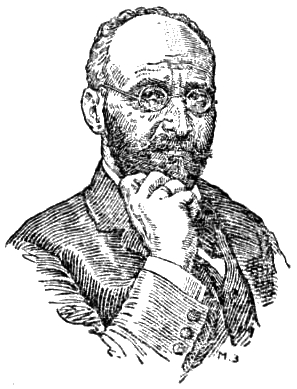Liberty Matters
On Böhm-Bawerk’s ‘Unforced Error’ in Defending his APP
 In his comment of April 19, Peter Lewin claims ‒ correctly, in my view ‒ that the “causal-genetic approach is a unifying fundamental in all of Böhm-Bawerk’s contributions.” And he added parenthetically that “[i]t seems to me the technicalities of the APP [Average Period of Production] in which he became involved was something of an aberration.”
In his comment of April 19, Peter Lewin claims ‒ correctly, in my view ‒ that the “causal-genetic approach is a unifying fundamental in all of Böhm-Bawerk’s contributions.” And he added parenthetically that “[i]t seems to me the technicalities of the APP [Average Period of Production] in which he became involved was something of an aberration.”An aberration, yes ‒ and worse, the APP, along with the associated “roundaboutness,” became the target of many of Böhm-Bawerk’s detractors. Putting the emphasis on physically defined inputs, Schumpeter reminded us[73] that iron mined in Roman times may be present in a modern-day pocket knife. True enough, but unless there is a causal link between the perceived demand for mid-twentieth-century pocket knives and the Roman mining operations, the intervening time span does not qualify as “production time” in any economically relevant sense. The physical continuum is a strict irrelevancy.
Earl Rolph, a longtime critic of Austrian capital theory, focused on redwood fences rather than pocket knives. He called the concept of roundaboutness into question on the grounds that “not infrequently, a squirrel must be given credit for planting the proverbial [redwood] acorn.[74] Well, the squirrel gives the argument a whole new dimension, but even if the acorn was planted by an eighteenth-century conservation agent, the agent’s input would not be the starting point for measuring the Böhm-Bawarkian “roundaboutness” associated with the creation of today’s redwood fences.
When Bohm-Bawerk responded[75] to contemporaneous critics of the APP, he committed what in baseball is called an “unforced error.” He could’ve ‒ should’ve ‒ responded on the basis of the distinction between physical continua and causal links. But, instead, he argued that production activities of the remote past are so heavily discounted that they can be safely neglected. Higher powers of the discount rate are sufficiently close to zero that for practical purposes they are equal to zero. Böhm-Bawerk’s lapsing from the causal-genetic approach here is likely what caused Menger to charge him with “one of the greatest errors ever committed.” (For a fuller discussion of what I am now calling an unforced error.[76]
Still, Böhm-Bawerk’s rough-and-ready treatment of production time reminded his readers of the facts that (1) production takes time and (2) some production processes take more time than others. Further, time preferences as reflected in interest rates help entrepreneurs to choose between (a) relatively short production processes that have only modest yields and (b) relatively long production processes that have substantially higher yields. These are the critical aspects of capital that were wholly eclipsed by Clark’s and Knight’s sterile stock-flow conception that simply neglects production time ‒ a conception adopted wholesale by many modern macroeconomists.
Endnotes
[73.] Schumpeter, Joseph A. History of Economic Analysis. New York: Oxford University Press, 1954, p. 108).
[74.]Rolph, Earl R. “On Austrian Capital Theory,” Economic Inquiry, vol. 18, no. 3 (July, 1980), pp. 501-3. Quote, p. 102.
[75.]Böhm-Bawerk, Eugen von. Capital and Interest, 3 vols. in one (1997). South Holland, IL: Libertarian Press. Trans. by George D. Huncke and Hans F. Sennholz, 1959. Quote, vol. 2, p. 86.
[76.]Garrison, Roger W. “Austrian Capital Theory: the Early Controversies,” History of Political Economy, supplement to vol. 22, 1990, pp. 133‑54. Published as Bruce J. Caldwell, ed., Carl Menger and his Legacy in Economics, Durham, NC: Duke University Press, 1990. Quote, pp. 135-39.
Copyright and Fair Use Statement
“Liberty Matters” is the copyright of Liberty Fund, Inc. This material is put on line to further the educational goals of Liberty Fund, Inc. These essays and responses may be quoted and otherwise used under “fair use” provisions for educational and academic purposes. To reprint these essays in course booklets requires the prior permission of Liberty Fund, Inc. Please contact oll@libertyfund.org if you have any questions.